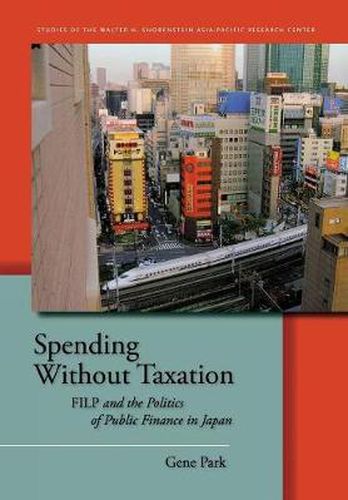Readings Newsletter
Become a Readings Member to make your shopping experience even easier.
Sign in or sign up for free!
You’re not far away from qualifying for FREE standard shipping within Australia
You’ve qualified for FREE standard shipping within Australia
The cart is loading…






Governments confront difficult political choices when they must determine how to balance their spending. But what would happen if a government found a means of spending without taxation? In this book, Gene Park demonstrates how the Japanese government established and mobilized an enormous off-budget spending system, the Fiscal Investment Loan Program (FILP), which drew on postal savings, public pensions, and other funds to pay for its priorities and reduce demands on the budget.
Park’s book argues that this system underwrote a distinctive postwar political bargain, one that eschewed the rise of the welfare state and Keynesianism, but that also came with long-term political and economic costs that continue to this day. By drawing attention to FILP, this study resolves key debates in Japanese politics and also makes a larger point about public finance, demonstrating that governments can finance their activities not only through taxes but also through financial mechanisms to allocate credit and investment. Such policy finance is an important but often overlooked form of public finance that can change the political calculus of government fiscal choices.
$9.00 standard shipping within Australia
FREE standard shipping within Australia for orders over $100.00
Express & International shipping calculated at checkout
Governments confront difficult political choices when they must determine how to balance their spending. But what would happen if a government found a means of spending without taxation? In this book, Gene Park demonstrates how the Japanese government established and mobilized an enormous off-budget spending system, the Fiscal Investment Loan Program (FILP), which drew on postal savings, public pensions, and other funds to pay for its priorities and reduce demands on the budget.
Park’s book argues that this system underwrote a distinctive postwar political bargain, one that eschewed the rise of the welfare state and Keynesianism, but that also came with long-term political and economic costs that continue to this day. By drawing attention to FILP, this study resolves key debates in Japanese politics and also makes a larger point about public finance, demonstrating that governments can finance their activities not only through taxes but also through financial mechanisms to allocate credit and investment. Such policy finance is an important but often overlooked form of public finance that can change the political calculus of government fiscal choices.